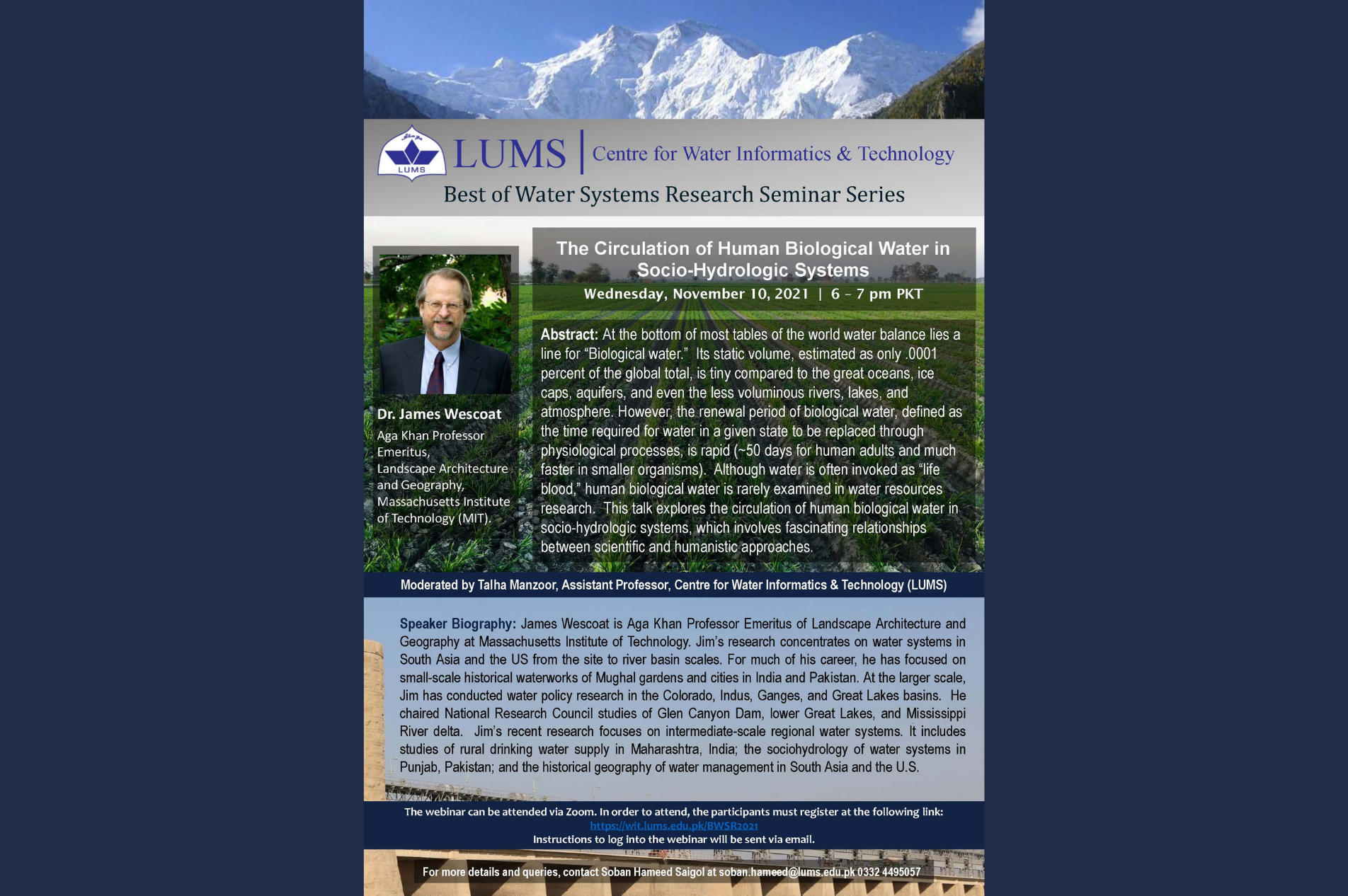
The Circulation of Human Biological Water in Socio-hydrologic Systems
The Centre for Water Informatics & Technology at LUMS is pleased to announce the next talk of the "Best of Water Systems Research" seminar series. The talk will be delivered by Dr. James Wescoat of MIT. The talk is titled "The Circulation of Human Biological Water in Socio-hydrologic Systems". The session will take place at 6:00-7:00 pm PKT on Wednesday, November 10, 2021.
For colleagues who have not yet registered for the seminar series, the registration link along with other details can be found at: https://wit.lums.edu.pk/BWSR2021.
About the speaker:
James Wescoat is Aga Khan Professor Emeritus of Landscape Architecture and Geography at Massachusetts Institute of Technology. Jim’s research concentrates on water systems in South Asia and the US from the site to river basin scales. For much of his career, he has focused on small-scale historical waterworks of Mughal gardens and cities in India and Pakistan. At the larger scale, Jim has conducted water policy research in the Colorado, Indus, Ganges, and Great Lakes basins. He chaired National Research Council studies of Glen Canyon Dam, lower Great Lakes, and Mississippi River delta. Jim’s recent research focuses on intermediate-scale regional water systems. It includes studies of rural drinking water supply in Maharashtra, India; the sociohydrology of water systems in Punjab, Pakistan; and the historical geography of water management in South Asia and the U.S.
About the seminar series:
The “Best of Water Systems Research” is a webinar series initiated by The Center for Water Informatics & Technology at LUMS. While our companion webcast series “Aab Beeti” is geared towards generating public awareness and meeting leading practitioners and opinion makers in Pakistan’s water sector, this new series (BWSR) is primarily meant for discussing serious scholarship on water resources. The series celebrates distinguished works in water systems research and is aimed towards researchers, practitioners, and technical experts in water-related areas. The list of speakers majorly consists of individuals who regularly deploy quantitative data-driven methods & systems thinking and have earned recognition via peer-reviewed research in top journals. Also, many of the speakers may or may not have a direct interest in the Indus or South Asia’s other basins.
A tentative schedule for the webinars can be found at https://wit.lums.edu.pk/BWSR2021 which also includes recordings of past sessions and information on future speakers. A link for attending will be sent via email to registered individuals. Colleagues who register once can attend all future talks without the need to register again.

